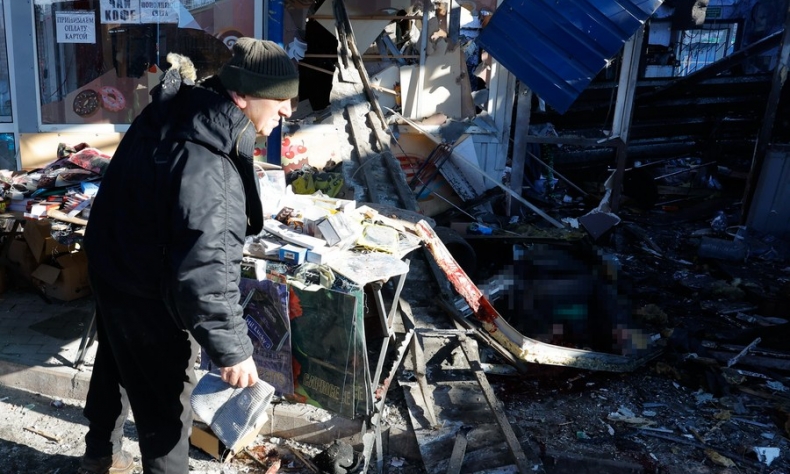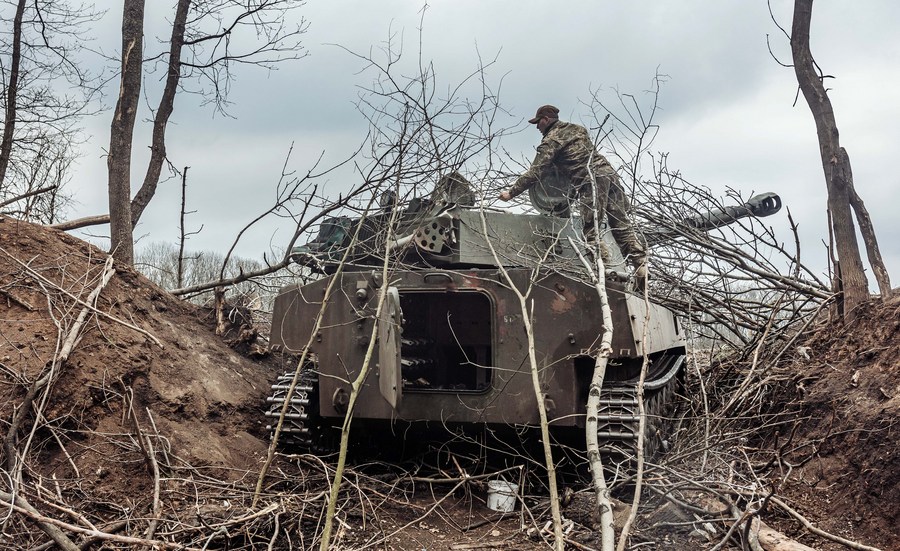Never Too Late for Peace

From the get-go, this war was an unnecessary one. Negotiation, ceasing fire and achieving genuine peace are the best possible outcomes for all parties involved.
Steadfast Defender 2024, a drill highlighting and honing NATO’s ability to promptly deploy forces from North America and other parts of the alliance to fortify Europe’s defense, officially got underway on January 24.
Approximately 90,000 personnel from all 31 NATO member states and Sweden, which is actively seeking to join the alliance, are participating in the four month-long transatlantic undertaking, the biggest NATO military exercise since the 1988 Reforger drill during the Cold War.
Top officers have said the drill aims to show that the alliance can defend all of its territory up to its border with Russia.
In response, Russian diplomats have warned that NATO’s “deliberate provocations” may increase the risk of military conflict between Russia and NATO member states, causing “tragic consequences” for Europe.
Additionally, Russian President Vladimir Putin arrived in Kaliningrad Oblast, a Russian exclave situated between Poland and Lithuania, on January 25 to promote economic and social development. As Russia’s toehold in Europe, this strategically significant territory on the Baltic coast has been a focal point of the EU’s economic sanctions against Russia since 2022.
Reports indicate that several senior officials from NATO countries have issued warnings about the potential for new conflicts between Russian and NATO forces in the Suwalki Gap, a thinly populated stretch of rolling fields, forests and lakes between Belarus and Kaliningrad, as early as summer 2025.
Ukrainian President Volodymyr Zelensky on his part, then, raised the risk of a third world war during an interview in Germany in late January. All in all, it would appear the Russia-Ukraine conflict is slowly but surely spiraling.
However, it’s possible that events are unfolding in a different way—a long-overdue peace may finally be on the horizon in this conflict where no one will emerge victorious.

If observed with a relatively neutral stance, the conflict has failed to achieve the objectives of both the West and Russia. The West, led by the United States, provided considerable military aid and technical support to Ukraine in the first year of the war. Under the guise of “defending the values of democracy and freedom,” all the while using Ukraine as a pawn to contain Russia, the goal may very well have been to ensure that Russia would not pose a threat of any kind to any Western country for the decades to come.
But even with stringent international sanctions in place, Russia hasn’t budged.
So what about the latter’s objectives, then? Russia in February 2022 set out to swiftly overthrow Ukraine’s pro-Western government and slow down NATO’s eastward expansion. So far, it has managed to do neither. Currently, on the Ukrainian battlefield, both warring parties are locked in a stalemate along a frontline spanning 2,000 km, with neither side having the capability to defeat the other.
Furthermore, Russia’s military operations have not been able to deter NATO’s expansion. On the same day Putin arrived in Kaliningrad, Türkiye officially approved Sweden’s accession to NATO. As of writing, among NATO member countries, only Hungary has yet to officially approve Sweden’s accession.
Hungarian Prime Minister Viktor Orbán has previously expressed his country’s support for Sweden’s NATO membership.
Russia’s efforts to safeguard its geopolitical security have, rather ironically, caused discontent among neighboring countries and, to some extent, strengthened unity within NATO, in turn accelerating the expansion of this military alliance. This is probably not the outcome Russian decision makers had hoped for.
From the get-go, this war was an unnecessary one. Negotiation, ceasing fire and achieving genuine peace are the best possible outcomes for all parties involved. Both Ukraine and Russia have borne huge losses, and the West cannot continue to invest more resources in this obvious deadlock. On January 23, for instance, the U.S. Pentagon announced it had no more money for Ukraine “right now.”
As the Dutch humanist scholar Desiderius Erasmus (1466?-1536) once said, “The most disadvantageous peace is better than the most just war.”
 Facebook
Facebook
 Twitter
Twitter
 Linkedin
Linkedin
 Google +
Google +










